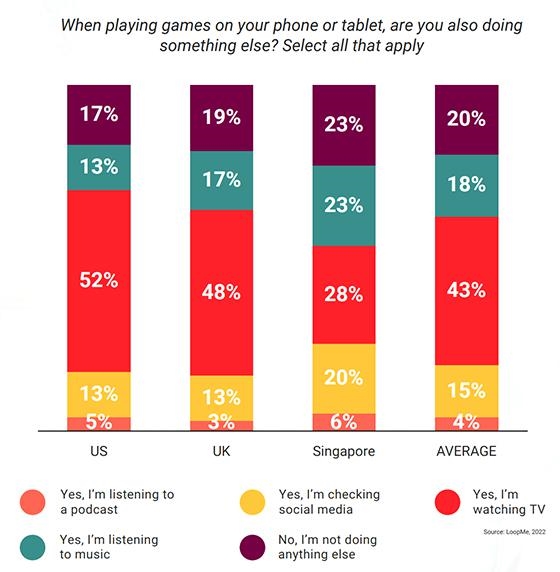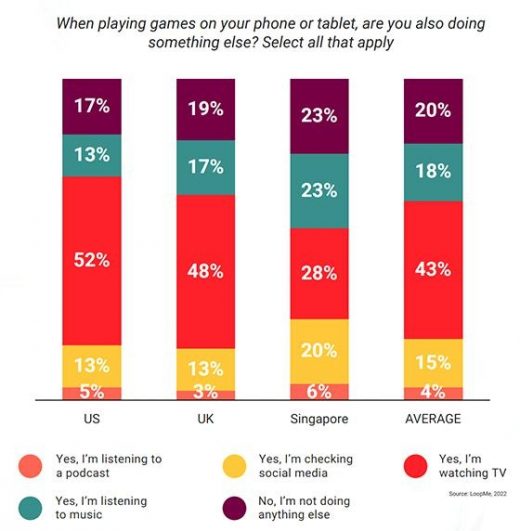62% Of Consumers Use Mobile To Play Games, 76% Play More Than 1 Hour Daily, Survey Reveals
62% Of Consumers Use Mobile To Play Games, 76% Play More Than 1 Hour Daily, Survey Reveals

Publishers, developers, and advertisers have a new opportunity to collaborate in 2023 when it comes to in-app gaming, according to data released this week from LoopMe.
The tech company, which uses artificial intelligence (AI) to improve brand-advertising performance, aggregated responses from 5,468 consumers across the U.K., 6,192 consumers across the U.S., and 6,680 consumers across Singapore. The study was fielded between October 13 and October 17, 2022.
Data from the study — Understanding Consumer Mobile Gaming Habits and Preference — shows 62% of consumers play games on their mobile devices, with 76% playing more than an hour daily, and 15% playing for more than five hours per day.
According to eMarketer, now a part of Inside Intelligence, time spent with mobile gaming is half the size of in-app social, yet the amount brands spend in social amounts to $56 billion, according to Statista, is 7-times that of the mobile gaming ad revenue projected for 2024, about $8 billion.
Interestingly, the data also shows that one-fifth of mobile gamers are highly attentive — focusing on the gameplay and nothing else, which presents a prime captive audience to lean into mobile brand advertising.

The survey’s findings show that 57% of consumers playing games on their mobile devices do so in their spare time, and 20% said they are completely focused on their gameplay and engage in no other activities while playing. This figure rises to 38% for gamers who are playing while also listening to music, but not doing anything else.
Mobile gaming in their spare time was highest among U.K. consumers, 63%, and lowest among consumers in Singapore, at 48%.
Some 32% of consumers in Singapore are most likely to not be doing anything else while gaming, and are least likely to watch TV while playing games, significantly lower than average at 28%.
Gaming during the daily commute was higher than average in Singapore at 15%. Comparatively, only 4% of U.S. consumers said they would play games while commuting.
(28)


